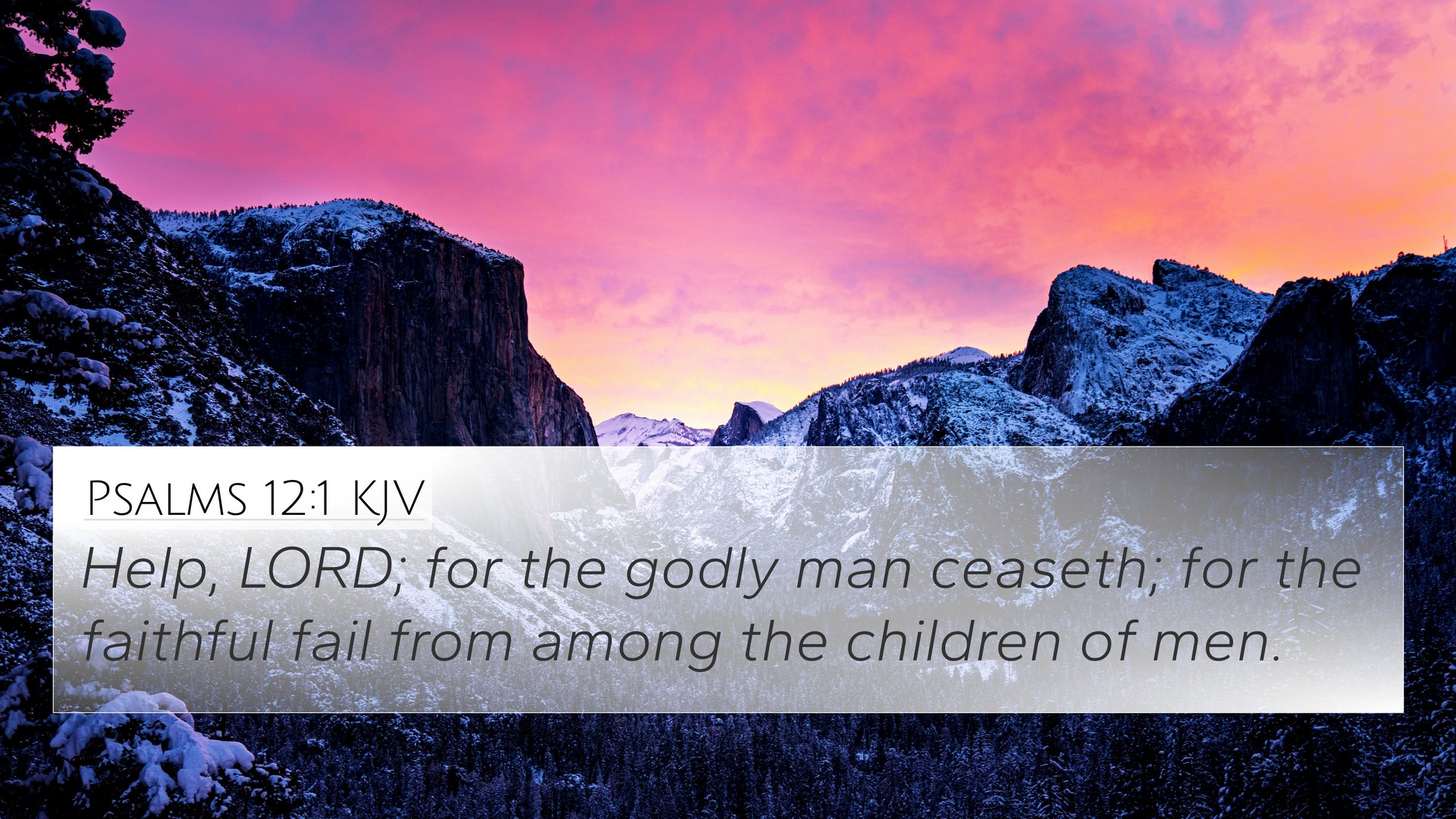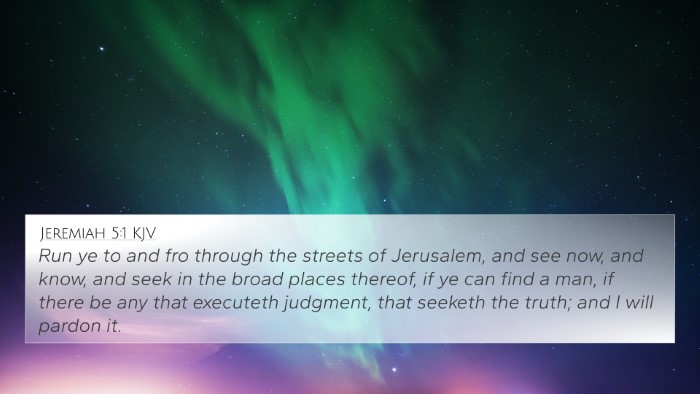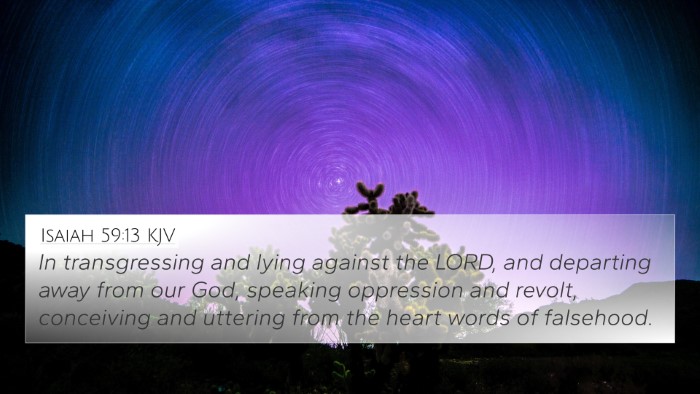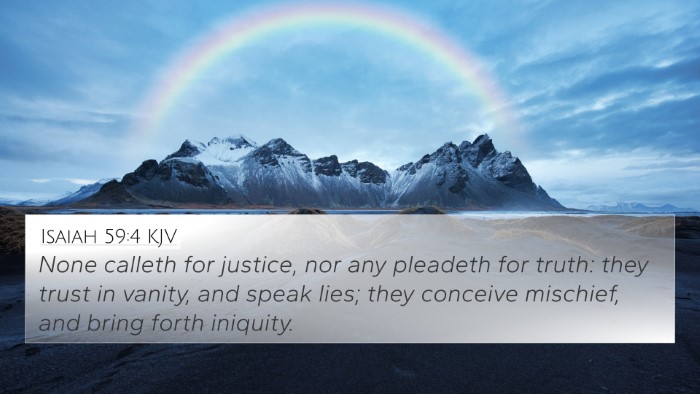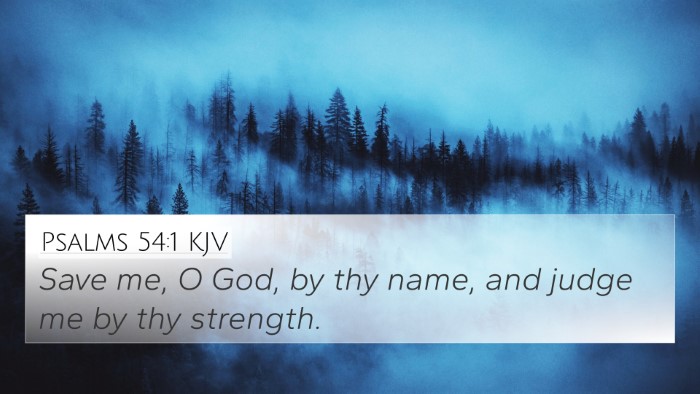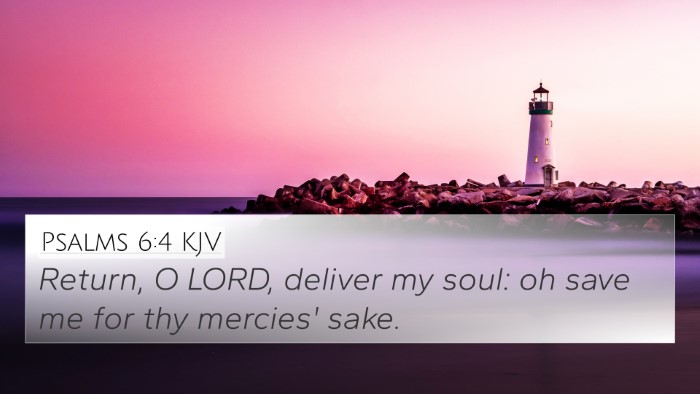Understanding Psalms 12:1
Psalms 12:1 states: “Help, Lord; for the godly man ceaseth; for the faithful fail from among the children of men.” This verse expresses a deep longing for divine assistance amid a societal decline in righteousness. Several public domain commentaries help unravel the layers of meaning behind this passage.
Summation of Insights
According to Matthew Henry, this verse reveals a moment of despair where the psalmist recognizes the absence of godly individuals. He perceives that those who once followed God's ways are becoming fewer, pointing to a universal truth about human depravity and the fragility of faith in a corrupt society.
Albert Barnes adds that the psalmist’s plea to God underscores a critical aspect of faith—reliance on divine intervention in times of moral decay. Barnes notes that the term "godly man" highlights the characteristics of believers who uphold truth and integrity.
Adam Clarke emphasizes the emotional weight of the cry for help, suggesting that it reflects an inner battle faced by believers when surrounded by wickedness. Clarke illustrates that the “faithful” refers to those who trust in God’s promises, and their diminishing presence is a cause for alarm and urgency in prayer.
Thematic Analysis
This verse can be interpreted within broader themes found throughout Scripture:
- The Call for Divine Help: The psalmist's plea exemplifies a recurring theme in the Psalms which often calls out for God's aid in times of trouble.
- Faithfulness Amidst Wickedness: The sentiments expressed connect with other verses that highlight the struggle of maintaining faith in a sinful world.
- The Importance of Righteousness: The decline of the “godly man” signals a broader moral collapse, a situation that is prevalent in many Biblical narratives.
Cross-References for Psalms 12:1
This verse can be linked to several important cross-references that collectively amplify its themes:
- Psalms 4:2 - "O ye sons of men, how long will ye turn my glory into shame?" This passage similarly depicts the struggle against wickedness.
- Psalms 11:3 - "If the foundations be destroyed, what can the righteous do?" A recognition of societal collapse and its implications for the faithful.
- Psalms 14:1 - "The fool hath said in his heart, There is no God." This verse contributes to the theme of moral decline.
- Proverbs 1:7 - "The fear of the Lord is the beginning of knowledge." This speaks to the need for wisdom amidst a decline in godliness.
- Isaiah 59:14-15 - "And judgment is turned away backward..." highlighting the corruption in society.
- Matthew 24:12 - "And because iniquity shall abound, the love of many shall wax cold." A New Testament reflection on the end times correlating with the psalmist's sorrow.
- 2 Timothy 3:1-5 - Describes the last days as perilous times when many will depart from the faith, reminiscent of Psalms 12:1's concern.
Practical Applications and Reflection
The urgency in the cry of the psalmist serves as a powerful reminder for contemporary believers:
- Seek God in Crisis: Just as the psalmist calls for help, modern believers are encouraged to turn to God during times of societal upheaval.
- Value of Righteousness: Reflect on personal faith and the role one plays in embodying the godliness that seems scarce.
- Warning Against Complacency: The decline of faithful individuals serves as a caution against becoming indifferent to sin in society.
Conclusion
Psalms 12:1 serves as both a lament and an invitation to seek God's face in times of spiritual desolation. The reflections by prominent commentators like Henry, Barnes, and Clarke illuminate the profound truth that the challenge faced by the psalmist is still relevant today. By engaging in scriptural cross-referencing, believers can uncover deeper connections and enrich their understanding of God's word.
